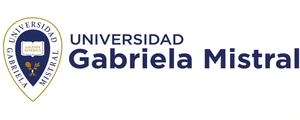Gabriela Mistral University Repository
The Gabriela Mistral University Library has developed the following Academic Repository in order to preserve, disseminate and make available the full-text contents of the academic production developed by the different actors in the academic and research field of the University.
The UGM University at the beginning of the year 2017 incorporated the UCINF University, also adding that collection where we find memories, theses, degree works, academic magazines, speeches, books, digital and sound files. Contact: [email protected]
The UGM University at the beginning of the year 2017 incorporated the UCINF University, also adding that collection where we find memories, theses, degree works, academic magazines, speeches, books, digital and sound files. Contact: [email protected]
Conocimiento y verdad según Tomás de Aquino
| dc.contributor.author | Ordenes Morales, Mauricio | |
| dc.date.accessioned | 2019-09-24T19:07:36Z | |
| dc.date.available | 2019-09-24T19:07:36Z | |
| dc.date.issued | 2018 | |
| dc.identifier.citation | Revista Chilena de Estudios Medievales Número 14 julio-diciembre, 2018 pp. 52-63 | es_ES |
| dc.identifier.issn | 0719-689X | |
| dc.identifier.issn | 0719-689X | |
| dc.identifier.uri | https://hdl.handle.net/20.500.12743/1697 | |
| dc.description.abstract | Según Tomás de Aquino el conocimiento tiene su causa material en el dato que proporcionan los sentidos, sin embargo, el entendimiento es activo en la formación del conocimiento en virtud de su actualidad. Del intelecto brota el conocimiento como su actividad propia e inmanente. Del mismo modo, la verdad se origina en los entes reales, no obstante, la verdad está principalmente en el juicio del intelecto por el cual que dice y manifiesta lo que las cosas son. La verdad es la manifestación de lo que es por medio del juicio de intelecto cuando conoce y capta lo que posee entidad. Este artículo pretende mostrar que la verdad está propiamente en el acto del entendimiento como manifestativo y declarativo de lo que es según su ser entitativo. // Abstract According to Thomas Aquinas knowledge has its material cause in the data provided by the senses, however, understanding is active in the formation of knowledge by virtue of its actuality. From the intellect springs knowledge as its own and immanent activity. In the same way, the truth originates in the real beings, however, the truth is mainly in the judgment of the intellect by which it says and manifests what things what they are. The truth is the manifestation of what it is through the judgment of intellect when it knows and grasps what has its own entity. This article aims to show that truth is properly in the act of understanding as manifest and declarative of what is according to its entitative being. | es_ES |
| dc.language.iso | es | es_ES |
| dc.publisher | Universidad Gabriela Mistral - Centro de Estudios Medievales | es_ES |
| dc.relation.ispartofseries | Revista Chilena de Estudios Medievales; | |
| dc.rights | Attribution-NoDerivs 3.0 United States | |
| dc.rights.uri | http://creativecommons.org/licenses/by-nd/3.0/us/ | |
| dc.subject | Verdad | es_ES |
| dc.subject | Conocimiento | es_ES |
| dc.subject | Origen del conocimiento | es_ES |
| dc.subject | Acto | es_ES |
| dc.subject | Canals Vidal | es_ES |
| dc.subject | Verbo mental | es_ES |
| dc.title | Conocimiento y verdad según Tomás de Aquino | es_ES |
| dc.title.alternative | Knowledge and truth according to Thomas Aquinas | es_ES |
| dc.type | Article | es_ES |



